SRPInsight

@SRP_Insider
The Application Programming Interface (API), is a web-based software application which allows clients to access our data in a controlled manner & integrate it using their own software packages & systems.


Retrieve.
• Download real time SRP data directly to excel
• Receive market share on each asset class/payoff for each company of interest
Interrogate.
• Monitor & increase your market share
• Carry out accurate trend analysis with comprenhensive product data spanning over 15 years in seconds

Incorporate.
• Import data directly into in-house systems/platforms and interrogate the data and risk more effectively



• Combine data sets with other products and visualise it in the context of the larger business


2 www.structuredretailproducts.com EUROPE
Editorial: Amelie Labbé, Pablo Conde, Summer Wang, Marc Wolterink
Production: Paul Pancham
Marketing: Daniel Evans

Sales: Reihaneh Fakhari
If you are interested in having a similar bespoke report produced for your organisation, please contact:

Reihaneh Fakhari
T: +44 (0)20 7779 8220
M: +44 (0)79 8075 6761
E: Reihaneh@structuredretail products.com
REPRINT POLICY:
SRP’s Reprint Policy: Articles published by SRP can be sent to sources for reference and for internal use only (including intranet posting and internal distribution). If an article is to be shared with a third party or re-published on a public website (i.e. a location on the World Wide Web that is accessible by anyone with a web browser and access to the internet), SRP offers reprints, PDFs of articles or advertisements, and the licensing to republish any content published on the SRP website. Prices vary depending on size, quantity and any additional requirements. To request authorisation to republish any Q&A, profile or feature published by SRP, please contact: info@structuredretailproducts.com
Front cover image: Manovector/AdobeStock
3 www.structuredretailproducts.com SRPInsight CONTENTS Contents Timeline 4 Europe Spotlights 9 EU Commission Ban 11 Esma report 12 UK Consumer Duty 14 Alpha by Contract 16 New products 19 People Moves 21
20 events that shook the industry
This year we mark the 20th anniversary of SRP!
The structured products industry has been in a perennial state of change pretty much since its inception. The seismic shifts seen in our industry happened because of specific decisions and market events that helped the structured products market to carve its own space in the financial markets.
As we celebrate 20 years of SRP, we look back at 20 of the top stories that defined and shaped the structured products market throughout two decades of change, disruption and innovation.
We are excited about all that we have achieved in that time to better serve the structured products community and bring transparency to the market. We invite you to join us as we celebrate the industry’s achievements and future endeavours and are thankful for your loyal partnership.
LAUNCH OF ON-LINE RESOURCE FOR THE STRUCTURED PRODUCT MARKET
29 JAN 2003
Companies seeking comprehensive information on the structured retail product market can now access a new, independent, on-line service designed to report on the UK market. SRP provides a database of over 1,100 individual products from more than 100 companies, dating back to 1997 and representing sales of over £20bn. Analysis of the structured retail products market in 2002 from SRP shows that the market grew by 15% from 2001 with gross sales volumes increasing from £5.47bn in 2001 to £6.27bn in 2002.
STRUCTURED PRODUCTS ASSOCIATION LAUNCHED IN US
8 JAN 2004
The Structured Products Association (SPA) established three months ago in the US has received an ‘exceptionally enthusiastic’ response from member firms, underscoring “the importance of a representative voice for this asset class within the financial community,” according to founding president and Societe Generale director Keith Styrcula. The SPA, which is a trade body initially targeting investment banks, has added 200 members in the last five weeks, and expects a final membership of between 2,000 and 3,000.
2004: ‘YEAR STRUCTURED PRODUCTS CAPTURED MAINSTREAM USA’
7 JAN 2005
2004 will be regarded as the year structured products went mainstream in America, according to the US Structured Products Association’s winter newsletter. Sales of registered structured products were up more than 20% to more than $12bn.Large retail institutions such as Raymond James, DB Alex Brown, CSFB Private Client Services and Wells Fargo staffed their distribution channels with structured products experts for the first time, and news reports suggested that twice as many private investors held derivatives-based products in their portfolios than in 2000.
SINGAPORE EMBRACES STRUCTURED PRODUCTS
20 JAN 2006
Structured products are proving popular with retail investors in Singapore, according to local press reports. Providers including OCBC, Standard Chartered and United Overseas Bank (UOB) are offering structured deposits, whilst the country’s first discount certificates were listed in August. Often European banks have partnered with local banks to provide new products to what is a still a growing market. StructuredRetailProducts recently reported on UOB’s launch of a structured fund in tandem with BNP Paribas and on the partnership between OCBC and Allianz to launch the first buywrite income product in Singapore.
4 www.structuredretailproducts.com NEWS | EUROPE
2003 2006 2004 2005
INTERNATIONAL STRUCTURED PRODUCTS GUIDELINES RELEASED
10 JUL 2007
The final version of a set of international guidelines for managing the provider-distributor relationship within the structured products industry has been published today by a group of industry bodies.
The stated aim of the principles, which will be tailored to suit the conditions of individual countries, is to address issues that financial services firms have ‘in practice found helpful to consider when performing the function of either provider or distributor in connection with the process of delivering structured products to retail investors.
LEHMAN BROTHERS CASE VALIDATES EMPHASIS ON ISSUER QUALITY
15 SEP 2008
The structured products industry’s newfound emphasis on the credit quality of the issuer has come too late for some, as investors, advisers and third party issuers begin to digest the impact of today’s Chapter 11 bankruptcy protection filing by Lehman Brothers’ in the US Bankruptcy Court.
After last night’s frantic rescue talks ended in failure, the market opened today to see trade suspended in Lehman’s structured products and a halt on coupons immediately due for payment as a consequence of the filing, which provides the bank with legal protection from debtors in order to reorganise its businesses.
UK STRUCTURED PRODUCTS ASSOCIATION LAUNCHES
19 NOV 2009
A group of UK retail structured product providers today launched the UK Structured Products Association (UK SPA). The association lists Citi, Credit Suisse, Legal & General, Morgan Stanley, Prudential, Royal Bank of Scotland, Santander and Skandia as members. These firms have funded the organisation so far. A spokesperson was unable to say whether plan managers are entitled to apply for full membership, but for the moment at least Gilliat, Walker Crips, Jubilee and Meteor sit on a separate independent plan managers and distributors committee.
The association said its role was primarily informative. “The Association gives providers an opportunity to inform and educate the investment community, and we believe its efforts will help them
UK FSA BASES RDR DEFINITION ON PRIPS
29 MAR 2010
The Financial Services Authority (FSA) has finally published its new rules - known as RDR - to tackle commission bias from advice on retail investment products. “If this market is to survive... people need to know their adviser is acting in their best interests and is well qualified to carry out that role,” said Sheila Nicoll, FSA director for conduct policy. “Today’s new rules are designed to boost confidence and trust in the retail investment market by removing commission bias, actual or perceived, and exploding the myth that investment advice is free.”
BELGIAN REGULATOR SEEKS END TO ‘COMPLEX’ PRODUCTS
15 JUL 2011
A voluntary moratorium from the Belgian Financial Services & Markets Authority is asking distributors to stop selling ‘unnecessarily complex’ structured products ahead of a public consultation designed to usher in a new regulatory regime. Distributors who sign the moratorium are committed to ensuring every new structured retail product meets criteria on accessibility of the underlying, complexity of investment strategy, payoff (yield should be derived from up to three mechanisms only) and transparency regarding cost, credit risk and market value.
ESMA’S PD CONSULTATION ENDS, MIFID CONSULTATION EXTENDED
4 JAN 2012
The European Securities and Markets Authority (Esma) consultation on the Prospectus Directive Technical Advice which was extended on 13 December to include its proposed advice in relation to the consent to use a prospectus in a retail cascade, and a review of certain provisions of the Prospectus Regulation (809/2004), will end at the end of the week before it is submitted to the European Commission (EC).
5 www.structuredretailproducts.com NEWS | EUROPE SRPInsight
2007 2008 2009
2010 2011 2012
BNP PARIBAS ACQUIRES CREDIT AGRICOLE €12.5BN EQD PORTFOLIO
23 OCT 2013
Credit Agricole CIB has agreed to transfer the administrative and operational management of a €12.5bn portfolio of notional to BNP Paribas GECD from January 2014 in order to ensure the continuity of service for investors in these products including redemptions, secondary market, valuations, reporting and client relationships.
RBS AND BNP PARIBAS HAMMER OUT IP&ED BUSINESS SALE
19 FEB 2014
BNP Paribas and RBS have reached an agreement on the sale of certain assets and liabilities from RBS’s Structured Retail Investor Products and Equity Derivatives (IP&ED) business.
The two banks said in a joint statement that following the start of exclusive talks in November 2013, the two banks have reached an agreement for the sale of certain assets and liabilities of RBS’s Structured Retail Investor Products & Equity Derivatives (IP&ED) to BNP Paribas Global Equities and Commodity Derivatives (GECD).
Yann Gerardin, global head of BNP Paribas GECD, said the acquisition will accelerate the French bank’s development in the retail listed products and structured retail products markets, “without modifying its risk profile”.
SP INDUSTRY POSITIONS HELD STRONG ON NEW PRIIPS/KID RULES
24 APR 2014
The structured products industry has reacted positively to the introduction of the packaged retail and insurancebased investment products (Priips) rules endorsed by the European Parliament last week. Under the new EU rules, a new pre-contractual information document for retail consumers will be required before they buy an investment product offered to them by a bank, an insurance company or an investment fund.
BANKS LAUNCH CONTINEO MULTI-ISSUER PLATFORM IN ASIA PACIFIC
20 JAN 2015
A consortium of banks including JPMorgan, Goldman Sachs, HSBC, Barclays, BNP Paribas and Société Générale Corporate & Investment Banking (CIB), and technology firm AG Delta are set to launch today a new open messaging network in a move to provide greater access to equity-linked structured products for private banking and wealth management firms.
The new platform will be managed by Contineo Ltd, which is backed and funded by the consortium to support the network and technology. The new platform, which will be led by technology veteran Mark Muñoz as managing director, will allow subscribers to access their counterparties through a web-based interface and a set of open application programming interfaces (APIs).
ESMA PUSHES BENCHMARKS
16 FEB 2016
REGULATION
The European Securities and Markets Authority (Esma) is seeking input from market players to inform its future proposals on draft Regulatory Technical Standards (RTS) and Technical Advice (TA) of the incoming Benchmarks Regulation (BR) to the European Commission (EC).
The goal of Esma’s discussion paper is to improve the governance framework and control over the benchmark process, and ensuring their reliability and protecting users, according to Steven Maijoor, Esma chair.
INDEX ANNUITY SALES HIT RECORD $60.9BN IN 2016, USE OF VOL CONTROL INDICES SURGES
15 MAR 2017
Fixed-indexed annuity (FIA) sales in the US hit a record US$60.9bn in 2016, up 12% from 2015 sales of $54.5bn, according to Limra’s Secure Retirement Institute Fourth Quarter US Annuity Sales survey, which was released at the end of February.
6 www.structuredretailproducts.com NEWS | EUROPE
2013 2014 2015 2016 2017
ESMA RELEASES FINAL PRODUCT GOVERNANCE GUIDELINES
8 JUN 2017
The European Securities and Markets Authority (Esma) has released the Final Report on product governance guidelines under the Markets in Financial Instruments Directive 2 (Mifid 2) regarding the target market assessment by manufacturers and distributors of financial products.
The requirements on product governance were introduced under Mifid 2 to enhance investor protection by regulating all stages of the lifecycle of products or services in order to ensure that firms which manufacture and distribute financial instruments and structured deposits act in the clients’ best interests.
SOCIETE GENERALE SNAPS UP COMMERZBANK’S EMC BUSINESS
3 JUL 2018
Societe Generale has reached an agreement to acquire Commerzbank’s equity markets and commodities business (EMC). After completion, the French bank will be responsible for the management of income payments, early redemptions and maturities on Commerz’s structured products book, which includes almost 400,000 live products across jurisdictions. In 2017 Commerzbank’s EMC business generated €381m gross revenues.
KOREAN DEALERS WAREHOUSE HIGH LEVELS OF EXOTIC RISKS
4 JUN 2019
Some local securities firms in South Korea – the world’s largest market for autocallable products – are rapidly building up risk in their positions from equity-linked products, raising uncertainties among issuers about their ability to manage market volatility. Mirae Asset Daewoo and Korea Investment & Securities are among a number of firms
END OF LIBOR: US$50 BILLION WORTH OF STRUCTURED PRODUCTS WAITING FOR THE SWITCH
22 NOV 2019
The global financial industry is rallying in anticipation of the Libor transition which will send shockwaves to the market as the benchmark underpins more than US$350 trillion of mortgages, loans and derivatives around the world. The demise of the Libor will have an impact on more than 1,459 live structures worth an estimated US$18 billion, featuring the Libor benchmark.
ESAS TARGET ESG DISCLOSURE STANDARDS
28 APR 2020
A European consultation on ESG disclosure standards is not yet applicable to structured products. The three European Supervisory Authorities (ESAs) (Eba, Eiopa and Esma) have issued a consultation paper seeking input on proposed environmental, social and governance (ESG) disclosure standards for financial market participants, advisers and products.
DEUTSCHE BANK HALTS US ISSUANCE
9 FEB 2021
The German investment bank stopped issuing structured products in the US market during 2020. Deutsche Bank has stopped new issuance of structured products in the US market with SRP data recording no activity throughout 2020 after three years of diminishing sales volumes. These reached a record low of US$17.5m in 2019 compared to US$618m in 2018, and US$1.1 billion in 2017.
US MARKET BREAKS US$100BN MILESTONE
26 JAN 2022
SRP takes a look at some of the most significant developments in the US structured products market during December 2021. December 2021 was a historic first for the US structured products market as sales volumes for the entire year crossed the US$100 billion milestone. Volumes stood at about US$101 billion and extend over 31,528 products in total.
7 www.structuredretailproducts.com NEWS | EUROPE SRPInsight
2018 2019 2020 2022 2021
Spotlight on… autocalls in Europe (2022)
Indices linked to European stocks remained the preferred underlying for autocalls,
share.
An estimated US$31.6 billion was collected from 7,850 autocall structured products linked to a single index in 2022 – an increase of 6.8% by sales volume year-on-year (YoY).
The products were sold across 17 different jurisdictions, of which France, with estimated sales of US$21.5 billion (from 2,000 products), was the biggest autocall market for single index-linked structures.
Looking at their geographical breakdown, indices linked to the European stocks remained the most attractive proposition with a 57.5% market share, despite losing 14% YoY. In this segment, the Eurostoxx 50 was the dominant index, claiming 29% of all volumes for Eurozone-linked indices, followed at quite some distance by the Eurostoxx Banks (3.6%) and Euro iStoxx 50 GR Decrement 3.75% Index (1.80%).
The latter was exclusively used in France by Amundi, including in LCL’s Premio AV (Avril 2022), which sold €146m during its subscription period.
Indices linked to France and Transatlantic indices linked to US & European stocks both increased their market share. The former, which includes the SBF Top 50 ESG EW Decrement 50 Points and MSCI France Select ESG 30 5% Decrement Net
Europe 2022: autocalls - geographical breakdown of single index underlyings*
Index, among others, captured 11% market share – up 2.7% YoY – while US & Europe (Transatlantic indices), which included Natixis’ iEdge ESG Transatlantic Water EW 50 Decrement 5% NTR Index, claimed 9.3% of the market (+3.8% YoY).
Another category that performed well were global equities indices, which saw their market share increase to 7.9%
(+2.5% YoY). In this segment, the MSCI World Climate Change ESG Select 4.5% Decrement EUR Index was used as the underlying for 857 products issued in Germany by Dekabank.
UK themed indices also fared well (+1.7% YoY), mainly due to structures linked to the FTSE 100, which claimed over four percent of all index-linked sales.
8 www.structuredretailproducts.com NEWS | EUROPE
despite losing 14% market
Source: StructuredRetailProducts.com 0% 10% 20% 30% 40% 50% 60% 70% 80% 90% 100% 2021 2022 Unspecified France & Germany USA Germany UK World US & Europe (Transatlantic) France Eurozone
*Excluding flow- and leverage products
Indices linked to the European stocks remained the most attractive proposition
Spotlight on… top issuers in the UK (FY2022)
Barclays captured almost 25% of the UK retail market which had its best year since 2017.
2022 was a good year for the UK retail market. Just under 900 publicly offered structured products worth an estimated £1.5 billion ($1.8 billion) had strike dates during the year – up 53% by sales volume compared to 2021 (£970 from 528 products).
In fact, retail sales reached their highest levels since 2017, when £1.6 billion was collected from 480 products, according to SRP data. Twelve issuer groups – a mixture of mainly UK, French and US investment banks – were active during the year.
Barclays was the main issuer group with a 24% share of the UK retail market. It collected approximately £350m from 182 products, significantly up from the previous year (2021: £177m from 100 products).
The bank’s offering was predominately FTSE 100-linked, with 90% of its products tied to the UK benchmark, including UK Step Down Kick Out Plan August 2022 (5197), which, with sales of £15m was the best-selling retail product of the year.
Barclays is also an active issuer of private placements. Almost 600 such products were issued in the UK during 2022, however, these are not included in the above chart.
Citi, which issues its UK retail products on the paper of its Citigroup Global Markets Funding Luxembourg vehicle, increased its
UK: top issuers - market share by sales volume*
market share by 12%: from five percent in 2021 to 17% this year. Citi achieved sales of £250m from 126 products of which 120 had a knockout feature. Morgan Stanley was another bank that increased its market share, claiming 11% of the UK market – up four percent year-on-year (YoY). The bank gathered an estimated £160m from 113 products that were exclusively linked to equity indices.
Source: StructuredRetailProducts.com
HSBC captured 10% of the market while Société Générale (eight percent) completed the top five.
Other issuers active in 2022 included Goldman, Crédit Agricole, Santander, Royal Bank of Canada, BNP Paribas and Natixis.
Disclaimer: data refers to public distribution products only.
Retail sales reached their highest levels since 2017
9 www.structuredretailproducts.com NEWS | EUROPE SRPInsight
*Public distribution only
0% 10% 20% 30% 40% 50% 60% 70% 80% 90% 100% 2021 2022 Others Santander Crédit Agricole Goldman Sachs Société Générale HSBC Morgan Stanley Citi Barclay
Spotlight on… single stocks in France (Q4 2022)
Structures linked to companies from the banking-, auto-manufacturers- and luxury goods sectors were in demand during Q4.
France: single stocks and single stock indices - market share by sales volumes*
Products linked to single names collected an estimated €380m – representing approximately six percent of the notional traded in the fourth quarter of 2022 in France. Market share remained sequentially flat from the previous quarter and was down 42% year-on-year. The gap has been filled in by single-name indexes with assumed dividend, which continued to gain visibility throughout 2022.
Stock-picking based on fundamental research and the lookout for opportunities from stocks, which have not fully recovered post-pandemic, has been a preferred approach for many investors to address the geopolitical uncertainty in Europe and on a macro level.
Shares from the banking sector, including those of Société Générale, Crédit Agricole and BNP Paribas, were the preferred underlyings of the French investor in the quarter, with estimated sales of €90m – equal to 24% of the total single-stock universe. One of the
best-selling products was a note on the share of Crédit Agricole, which was issued on the paper of Morgan Stanley International and collected €8.4m during the subscription period.
The auto-manufacturers sector captured 18% of the single-stock market, boosted by Stellantis, which was the most popular share in Q4 2022 after losing more than 25% of its value in 2022.
Structures tied to the share of Stellantis gathered approximately €38m – 10% of the single stock-linked universe in the quarter. Two-thirds of the volumes came from products that struck in December, with Morgan Stanley, Citi, Credit Suisse and Société Générale among the issuers. Additionally, five products, issued by Citi, were linked to iStoxx Single Stock on Stellantis GR Decrement 1 – an index with assumed dividend.
The share of Mercedes-Benz was also trending with five products linked the
stock and two products linked to an index: iStoxx Single Stock on MercedesBenz Group GR Decrement 3.8 Price EUR and Solactive Mercedes-Benz AR 5 Index, both with assumed dividend.
Sales of products linked to companies from the luxury goods sector (nine percent market share) have been boosted by the possible rebound of Chinese consumer demand in 2023, which is expected to favour the luxury industry.
The stock of Louis Vuitton Moët Hennessy (LVMH) was top luxury pick, while Veolia Environnement, a French company active in water management, waste management and energy services, translated a positive bet on the recessionresilient utilities sector (eight percent market share).
Other popular shares in the quarter included Orange (communication services), Total Energies (energy) and Klépierre (real estate).
10 www.structuredretailproducts.com NEWS | EUROPE
*Excluding flow- and leverage products Source:
0% 2% 4% 6% 8% 10% 12% 14% Q1 2021 Q2 2021 Q3 2021 Q4 2021 Q1 2022 Q2 2022 Q3 2022 Q4 2022 Single stock Single stock index
StructuredRetailProducts.com
EU commission ban plan comes under fire
The EU Commission’s plan to ban inducement-based sales of financial products from banks and insurance companies has come under fire after several European trade associations noted they would be a ‘serious setback’ to the European Union’s capital market and limit choice for consumers.
In a letter to Mairead McGuinness, European Commissioner for Financial Stability, Financial Services and the Capital Markets, Christian Lindner, Germany’s finance minister, welcomed the goal to deepen the EU capital market, but said he is ‘very much concerned’ about a possible ban on inducements as commission-based selling ‘predominates’ in the German insurance market.
‘EU regulation on inducements was already well balanced and forces investment firms to act in the best interest of their clients,’ Lindner said. ‘I am strongly concerned that a general ban would inhibit the provision of investment advice in cases where it is mostly needed.’
The letter from the German minister followed another missive from a group of financial trade associations including the European Association of Structured Investment Products (Eusipa), Insurance Europe and the European Banking Federation which wrote jointly to the European Commission to highlight the fact that the impact of an EU-wide ban on commission would vary greatly across member states.
According to the trade associations, a ban on commissions could negatively impact consumers in countries with a commission-based model as well as severely undermine the goals of the EU’s Retail Investment Strategy (RIS).
‘An EU-wide ban on commission-based advice would restrict EU consumers’ access to investment advice and would be inconsistent with several Capital Markets Union (CMU) objectives, including guaranteeing that retail investors can reap the full benefits of capital markets and advancing financial inclusion,’ stated the associations.
“[Mairead McGuinness’] position has come under increasing and significant pressure,” Thomas Wulf, secretary general at Eusipa told SRP.
“I don’t want to try to guess the outcome at this stage. There could still be a full ban, a partial ban or no ban at all. But Eusipa’s position hasn’t changed. We think a ban would be
counterproductive - it would restrict European consumers’ access to financial advice against a very difficult economic backdrop - and is unnecessary - because there is simply no evidence that paying commission to advisers increases costs to consumers or reduces the quality of advice. The Mifid regime in place today fully caters for the needs of EU retail investors.”
McGuinness set out last month a case in favour of banning inducements paid by banks and insurance companies to financial advisers that sell their financial products.
According to McGuinness, the ban on commissions introduced in the Netherlands and the UK about a decade ago has led to cheaper financial products for customers – the official also noted that the introduction of a EU-wide ban to the upcoming Retail Investment Strategy (RIS) would help to deepen the bloc’s capital market by attracting more retail investors.
CONSUMER CHOICE
However, Insurance Europe said last week that an outright EU-wide ban on inducements would limit consumer’s access to financial advice, and so undermine the goals of the Retail Investment Strategy (RIS).
According to the association, a combination of measures promoting transparency, value for money principles in product design and financial education would deliver more tangible benefits to consumers.
‘It is essential that the EU regulatory framework takes into account the unique features of insurance products (eg insurance cover, guarantees or capital protection mechanisms, flexibility of payments etc), the diversity of European markets and the fact that consumers value professional advice when investing,’ it said.
Insurance Europe noted that in many markets, ‘inducements are an indispensable part of the distribution system for retail investment products, without which consumers’ access to professional advice would be significantly curtailed’.
In member states where the provision of advice is mandatory, an outright EU-wide ban on inducements could inhibit consumers’ participation to financial markets even more, according to the association, which also noted that the Insurance Distribution Directive (IDD) already provides robust rules for the distribution of insurance products, allowing additional measures at national level if necessary.
11 www.structuredretailproducts.com SRPInsight FEATURE
Several European trade associations and the German ministry of finance have cast a shadow on an outright EU-wide ban on inducements as it would undermine the goals of the EC’s Retail Investment Strategy (RIS).
Esma: cost of retail investment products continues decline
The regulator has released its annual report covering the costs and performance of retail investment products sold in Europe.
The costs of investing in the most important retail financial products continued to decline, albeit at a very slow pace between 2012 and 2021, according to the European Securities and Markets Authority (Esma).
According to the EU financial markets regulator and supervisor’s fifth annual report on the costs and performance of EU retail investment products, costs have declined but investors should continue to consider fund fees carefully in their investment decisions.
In a context of high economic uncertainty, high inflation and relatively low market performance, the high costs of certain investment products, particularly for retail investors, ‘raise concerns about actual investment outcomes’, according to Verena Ross, Esma chair.
‘Whilst the cost incurred by investors is slowly declining compared to the past years, the availability of well-designed and cost-efficient products is a key element to encourage increased consumer participation in the European capital markets,’ she said.
Specific to structured retail products (SRPs), total costs were
largely attributable to entry costs and varied substantially by country and by payoff type. According to the report, costs of products issued in 2021 increased for most payoff types and issuers compared to products issued in the previous three years.
The regulator noted that the cost and performance of retail investment products are key determinants of the benefits and risks for retail investors in the EU which is why the disclosure of clear and comprehensive information on retail investment products can help investors assess the past performance and costs of products offered across the EU and foster retail investor participation in capital markets.
‘It also demonstrates the relevance of disclosure of costs to investors, as required by the Mifid 2, Ucits and Priips rules and the need for asset managers and investment firms to act in the best interest of investors especially considering their role in manufacturing and distributing investment products,’ stated the report.
The regulator also found that investors paid around €3,000 in costs for an investment of €10,000 over the 10 years to 2021 which led to a final net value of €18,500 at the end of this period. Beyond performance and costs, the overall utility that
by payoff type
12 www.structuredretailproducts.com
Total costs for SRPs by country Total costs for SRPs
Source: Esma, StructuredRetailProducts.com, Financial entities’ website Source: Esma, StructuredRetailProducts.com, Financial entities’ website PT (29 docs) NL (68 docs) HR (7 docs) ES (246 docs) LU (620 docs) AT (799 docs) BE (87 docs) SK (26 docs) FR (1598 docs) PL (40 docs) DE (7467 docs) IT (1192 docs) FI ( docs) IE (45 docs) SE (361 docs) CZ (10 docs) Country % Reduction in Yield (at RHP) 0 2 4 6 8 Payo Type % Reduction in Yield (at RHP) 0 2 4 6 8 Autocall (127 docs) Snowball (1865 docs) Worst of Option (1542 docs) Other (283 docs) Uncapped Call (423 docs) Knock Out (8081 docs) Reverse Convertible (8597 docs) Protected Tracker (1785 docs) Enhanced Tracker (178 docs) Capped Call (533 docs) Credit Default (220 docs) Digital (210 docs) FEATURE
The cost incurred by investors is slowly declining compared to the past years
investors can derive from investment products, ie their value-formoney, is gaining growing attention, according to the regulator.
With an outstanding value a little over €300 billion in 2021, retail structured products remain a much smaller market than Ucits and AIFs. According to the report, the share of capital-protected products in sales volumes has declined further ‘indicating a growing source of market risk for retail investors’.
‘Costs – largely charged in the form of entry costs –rose in 2021 for a majority of product types and issuers, although they vary substantially by payoff type and country,’ stated the report. ‘The analysis of performance scenarios shows that the returns of one tenth of SRPs would be negative even in a moderate scenario.’
The range in reduction in yield (RIY) shows a substantial variation across EU member states as well as across payoff types. The breakdown of total costs across underlying asset types shows that a small number of SRPs backed by different underlying asset classes ‘Hybrid’ had the highest costs, while ‘Credit’ and ‘Interest Rate’ underlying assets were associated with the cheapest products.
Products backed by equites display large cost ranges, with no
clear distinction between products backed by single assets‘Single Share’, ‘Single Index’ - and products backed by a variety of underlying assets - ‘Share Basket’, ‘Index Basket’ -.
‘This suggests that it is rather the ‘structured’ nature of SRPs’ payoff (the most challenging part for investors to assess) that drives costs,’ stated the regulator.
The report also shows that the has been a change in total costs in 2021 from 2018-2020 with several product types getting more expensive. The median cost of products of Capped Call type increased for 12 out of 16 issuers, and for seven out of 11 issuers in the case of Uncapped Call products. The median cost of products of Reverse Convertible type increased for 16 out of 24 issuers.
‘Products issued in 2021 tended to be more expensive than analogous products issued in previous years,’ it said.
The regulator concluded that expenses are usually front-loaded in the form of entry costs - these are the only costs in over 92% of the KIDs where information on costs was retrieved, and that around four percent of the products are expected to incur recurring costs applied over their lifetime.
Change in total costs in 2021 from 2018-2020
13 www.structuredretailproducts.com SRPInsight FEATURE
Total costs for SRPs by underlying asset
Source: Esma, StructuredRetailProducts.com, Financial entities’ website Source: Esma, StructuredRetailProducts.com, Financial entities’ website Underlying Asset Class % Reduction in Yield (at RHP) 0 2 4 6 10 8 Hybrid (71 docs) Equity (Share Basket) (1592 docs) Equity (Single Index) (3098 docs) Equity (Single Share) (6083 docs) Fund (142 docs) Other (39 docs) Equity (Index Basket) (158 docs) Credit (213 docs) Interest Rate (21 docs) Payo Type Change in % Reduction in Yield (median by issuer, 2021 vs. 2018-20) -2 0 2 4 Capped Call (16 Issuers) Credit Default (3 Issuers) Digital (5 Issuers) Enhanced Tracker (6 Issuers) Knock Out (27 Issuers) Protected Tracker (14 Issuers) Reverse Convertible (24 Issuers) Snowball (20 Issuers) Uncapped Call (11 Issuers) Worst of Option (19 Issuers)
FCA consumer duty puts manufacturers under the microscope
The UK’s Financial Conduct Authority has been checking firms’ progress ahead of the 31 July Consumer Duty deadline and warned this week that some may struggle to apply the rules effectively when they come into force. The ‘outcomes-based’ Duty is a big shift in the way product development and service is conceived and measured. It also brings product manufacturers into the consumer outcomes chain with a look-through provision designed to challenge a manufacturing business model often built around the fact that they don’t deal with retail.
“That will be what brings firms manufacturing structured products into scope. And that was deliberate because the FCA is concerned that, in the past, some products have been designed to exploit customer weakness, to play on biases in some way and put profit before people,” said Sara Cody, Counsel (Knowledge), FRG, at Linklaters in London.
According to 1OAK Capital MD David Stuff, issuers will have to start thinking about what they can do to demonstrate the products they are developing are good for the end customer and what information they provide to the buy side, whether IFA or a private bank, DFM or family office, and whether the product is sold as a stand-alone or to be part of a portfolio.
“It’s going to be very hard for [them] to simply say they are responding to a reverse inquiry,” he said.
Given the dual nature of the change, it is not surprising that progress is, as Simmons & Simmons’ Supervising Associate (FSR) Charlotte Rendle puts it, a ‘mixed bag’.
Some of the gaps arise from a failure to grapple with the uplift from existing regulatory requirements.
“Most firms have implemented PROD to a high standard, so believe they are largely compliant with the Products and Services Outcome, but actually in our view there is diverging market practice and usually more work for a firm to do to bring them up to best practice and FCA expectations,” Rendle said.
Despite this requirement, and the need for information flow between manufactures and distributors, SRP struggled to get investment banks to talk to this ‘regulatory matter’.*
A source at one of the investment banks stated: “There are already a number of regulations and processes in place to generate the right customer outcome, including for vulnerable customers, ie, Mifid and Priips, so we already have the processes in place that overlap with the Consumer Duty regulation.”
Here, Rendle added a note of caution, suggesting, that “vulnerability is a hot topic for structured product manufacturers, in terms of what it actually means for them to consider how they meet the needs of end investors with characteristics of vulnerability”.
Cody went further making the broader point that Consumer Duty requires a cultural shift for many manufacturers.
“I think the challenge here is getting people to understand that Consumer Duty is a step change,” she said. “If you can get the people doing the actual product designing to understand what the rules require early on, this will be easier and
quicker to achieve. With some regulatory changes you can train staff in the business at the end, once you’ve worked out your new structures and processes. I think the Consumer Duty is a bit different.”
PRACTICAL CHALLENGES
Among the practical challenges for the structured products industry is the nature of the information required, and the potential for firms in both manufacturing and distribution to get multiple requests for information in different formats.
“Ideally this would be standardised,” said Cody, adding, “we’re definitely seeing industry bodies try and pull together things like templates for exchanging information around target market and value – they’re well placed to co-ordinate this”.
Zak de Mariveles UK SPA chair said the industry is still in discussions, “regarding what potential additional exchanges of information between manufacturers and distributors may (or may not) be required to satisfy consumer duty regulations”.
This is not really surprising - the Duty has been swift to arrive and although information such as target market might be easy to standardise, other areas, especially around price and value, may not.
“The Consumer Duty is outcomes-focused regulation, so it leaves a lot of the detail to firms to determine in the context of their individual businesses,” said Cody.
“Although firms have pricing policies, typically these need to be considered in further detail in light of the fair value assessment, and also the stress testing policy and related management information needs to be reviewed,” added Rendle.
14 www.structuredretailproducts.com
FEATURE
As the new guidelines loom, structured products issuers seem to be under the impression the work done to comply with the European regulation will tick all the boxes of the new UK rules.
On these related issues of data and metrics there are reasons to be optimistic and areas of concern. Optimistic, because UK providers and distributors have already had to grapple with regulatory focus on client outcomes – this is their third go in the last 15 years or so, IDAD managing director Clive Moore pointed out.
“Most UK structured product providers have found the best way to grow a business is to do this anyway, and products are pretty well targeted at a broad, generalist investment audience with lots of opportunities for individual clients/client groups to match more precise objectives by working with providers,” he said. “Risk disclosures and suitability statements are “very good and clear these days.”
Although 1OAK Capital MD David Stuff agrees there has been a clear improvement in UK marketing material and disclosure generally over the past decade, he believes the need to prove products’ worth in the real world (rather than describing what could happen under various scenarios) will mean, “a level of risk analysis beyond current provision or mandate.”
Priips, an “unmitigated disaster”, and its KID have failed to produce numbers that help an investor extrapolate what a product will do for them from the “forensic description” of what ‘might’ happen to it.
“Back testing is too easily arbitraged to be enough on its own, and some of
Consumer duty in brief
the laudable initiatives put forward by industry associations around positive/ negative scenarios may only confuse the investor, who has no idea whether the scenarios reflect good or bad performance,” said Stuff.
In addition, he lamented the fact that the industry “has failed to get ratings agencies to rate structured products, and urged the industry to come up with some kind of independent analysis that produces numbers which can be compared to other products such as high yield bonds or leveraged loan funds, as the duty demands”.
MEASURING OUTCOMES
One problem issuers face is how to demonstrate a product produces deliver ‘good’ outcome and meets expectations.
“As always, larger groups will produce pretty worthless surveys showing the products do [meet client expectations],” said Moore. “Smaller providers, on the other hand, will start formally recording adviser feedback obtained during normal reviews, including drilling down more into client outcomes, such as any complaints. This is the only real metric.”
According to Moore, “ultimately, the high percentage of rollover investments in the structured products market is an excellent indication” of the UK structured products industry’s fitness for purpose as it moves into Consumer Duty territory.
“[The industry] has worked hard over the past decade or so to improve its
offering, and, most product development is to do with payoff shape and barriers/ trigger levels as well as tenor and suitable underlyings, rather than trying to solve those based on the highest coupon,” he said.
Despite this, and the fact that Consumer Duty gauges outcomes rather than products, regulators may nevertheless look more closely at distributors of products with complex or unusual underlyings or that lack performance data and appear chosen to improve optics.
“The ‘obvious banana skin’ are products based on fixed decrement indices, where the decrement is materially higher than the dividend yield,” said Stuff. “If you are combining this kind of strategy with other features like equal weighting you are hiding the effect of the fixed decrement in the strategy and that could be problematic. From a product structuring perspective is going to be difficult for this kind of underlying to meet the consumer duty requirements.”
As always, says Moore paraphrasing a familiar refrain, if providers focus on identifying client need and delivering investments that meet that need, things generally go fine.
“If the focus is on selling products that deliver the most profitability to providers by trying to shoe-horn them into markets for which they may not be appropriate, then the new rules should make this more difficult. That is a good thing,” he said.
Consumer Duty is an outcomes-based regulation that insists firms manufacturing and distributing retail financial services act to produce good customer outcomes by adhering to three cross-cutting regulatory requirements. They must act in good faith, avoid causing foreseeable harm and support customers in pursuing financial objectives.
Sitting underneath these principle-based rules are four required outcomes. Products and services essentially extends across the industry the existing Product Intervention & Product Governance Sourcebook, which is designed to ensure products fulfil the needs of identified target markets. Customer understanding introduces rules to ensure consumers have timely and understandable information. Price and value says products and services should offer value relative to the price charged, and without excessively high fees. Customer support requires customer service to respond helpfully to all enquiries.
Answering these requirements is necessary, but not sufficient to ensure providers meet the principle of ‘providing good outcomes’. Firms will be required to step back and take an overall look at whether a product or service is working for the customer.
15 www.structuredretailproducts.com SRPInsight FEATURE
‘Alpha by Contract’ - the new ABC of investing?
audience for Taylor’s paper, which is part of a campaign challenging them to rethink an attitude that has often not kept pace with the transformation of the structured products industry.
The paper showcases return statistics and highlights the merits of including structured products in a diversified portfolio. It explains structured products and banking industry improvements since the financial crash, and busts persistent myths about negative events structured products were caught up in (but were not of their making and where structured product holders did not suffer) like the Keydata collapse.
The paper also tackles myths –around complexity, dividends, and fees – that can be better explained by psychological biases than by the facts.
Taylor believes this linguistic mismatch prevents structured product providers from splitting open a binary discussion about the advantages and shortcomings of passive versus active management to insert the contractually delivered payoffs – the unique and contractually binding relationship to the underlying asset, and resulting diversification –structured products can offer.
This is necessary, to return to that binary discussion, because future sources of alpha are difficult to reliably identify, and, in a closely related point, are rarely consistently replicable over the long term, according to Taylor.
Today, and with apologies for adding yet another acronym to the SRP lexicon, we are talking about ABC – Alpha by Contract – a TLA that Chris Taylor, global head of structured products at UK provider Tempo Structured Products is hoping will stick.
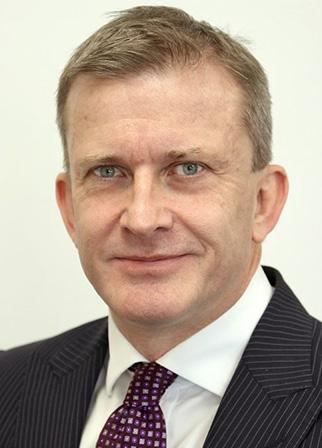
Taylor (pictured) hopes, in fact, that this cornerstone of his recent white paper, ‘Structured products: USPs, evidence, need and cognitive biases’ will prove so convincing an intervention in the active versus passive management debate that advisers will take up structured products in droves. Or will at least include them in their investment universe, as evidence-based advisers surely should.
Those advisers who have, “metaphorically or literally pressed unsubscribe on the sector,” are the main
SHINING NEW LIGHT
These arguments are well rehearsed in our industry. The reframing of structured products in language familiar to advisers, however, is new.
“The active/passive debate is probably the single biggest, longest-running conversation in the investment universe, which will no doubt continue to run and rage forever. However, structured products are not part of the conversation – and we would suggest that this is, in part, because the structured products sector isn’t talking the right language,” Taylor explains.
He continues: “Wealth managers and professional advisers are discussing ‘alpha’ and ‘beta’… Meanwhile, the structured products sector is talking about zero coupon bonds and equity derivatives.”
Active manager alpha is also generally expensive to access (a particular concern in a low returns environment) and often of limited (a few percentage points) ambition. The traditional alternative, beta, is also a concern in the low returns environment many commentators expect to prevail over the short to medium (and possibly even longer) term.
ENTER ‘ALPHA BY CONTRACT’
The term does not imply that all structured products outperform all of the time. (1) It is a concept of two parts, an assertion that structured products can and do deliver alpha (more on which below), and that they do so based on the legal, contractual obligation on issuers to honour a particular defined payout, with “risk/return profiles that neither active nor passive funds offer or deliver” and without dependence on fund management processes and skill.
To reinforce the first half of the concept, the paper highlights the performance of around 5,000 UK IFA-distributed
16 www.structuredretailproducts.com FEATURE
A white paper released by UK distributor Tempo Structured Products is seeking to challenge advisors’ reluctance to adopt structured products for their clients.
structured products launched and matured over the last 20 years or so, which Taylor says evidences structured products’ USPs and, “shines a light on the potential merits of including structured products in diversified portfolios.”
The data, from Structured Products Review, shows the vast majority (98.46%) of the 3,895 UK retail structured products maturing between January 2010 and December 2019 either generated positive returns or repaid capital.
The average return of all maturing investment products (excluding deposits) was 6.98% pa. Only 1.54% of maturing structured products created a loss, and only one single product linked only to the FTSE 100 created a loss. A similar picture pertains for the 2,145 UK retail structured products maturing between January 2017 and December 2021.
To emphasise the point about Alpha by Contract, the paper also details the performance and risk/return profile of the first ten of Tempo’s plan maturities. All ten are defensive kickout products, and all ten delivered Alpha by Contract compared with relevant price return indices (including their linked index), and with typical FTSE 100 gross dividends re-invested trackers.
“The analysis also highlights why structured products can arguably be viewed as presenting better risk/return profiles than comparable active and passive mutual funds,” Taylor says.
The paper also focuses on portfolio construction and diversification which could be facing a few challenging years ahead. “The case for structured products does not hinge only on a long-term, low-returns investment environment,” says Taylor. But he believes it could be difficult for professional advisers to identify investment options that can “reasonably be considered more likely to generate viable levels of positive returns for investors, in the region of 6-12% pa, in low return, no return and moderately
3,895 UK retail structured products matured between January 2010 and December 2019
3,835 (98.46%) generated positive returns or repaid capital
The average return of all maturing investment products (excluding deposits) was: 6.98% p.a.
The average return of the 2,465 capital-at-risk products was: 7.84% p.a.
The average return of the top quartile capital-at-risk products was: 11.84% p.a.
1,566 (65.53%) of the maturing capital-at-risk products included a kick-out feature:
The average return of the capital-at-risk kick-out products was: 8.40% p.a.
The average return of the top quartile capital-at-risk kick-out products was: 12.09% p.a.
ONLY 60 (1.54%) maturing structured products created a loss
ONLY one product linked solely to the FTSE 100 created a loss
NO products linked solely to the FTSE 100 created a loss since 2012
The average duration of all maturing structured products was: 3.75 years
The average duration of maturing capital-at-risk kick-out products was: 2.11 years
2,145 UK retail structured products matured between January 2017 and December 2021
2,114 (98.55%) generated positive returns or repaid capital
The average return of all maturing investment products (excluding deposits) was: 6.82% p.a.
The average return of the 1,677 capital-at-risk products was: 7.03% p.a.
The average return of the top quartile capital-at-risk products was: 10.07% p.a.
1,192 (71.03%) of the maturing capital-at-risk products included a kick-out feature:
The average return of the capital-at-risk kick-out products was: 7.37% p.a.
The average return of the top quartile capital-at-risk kick-out products was: 10.31% p.a.
ONLY 31 (1.45%) maturing structured products created a loss
NO products linked solely to the FTSE 100 created a loss
The average duration of all maturing structured products was: 3.76 years
The average duration of maturing capital-at-risk kick-out products was: 2.62 years
Source: Tempo Structured Products
falling market environments, than structured products.”
To back up the arguments in the paper, Tempo Structured Products hopes to arrange an academic study on structured products and Alpha by Contract. Given the UK market’s current emphasis on single payout kickout products, it would be useful to see excess returns analysed by payoff profile over time and in relation to underlying market changes, and to demonstrate their effect on a broader portfolio. Tempo also plans an analysis of long-term equity performance, which Taylor expects to reveal persistent periods of low returns.
‘Alpha by Contract’ continues the theme SRP has explored several times this year: how the changing nature of financial advice provision mitigates
against structured products for many advisers, and the right way to attract them back to an improved industry. Is new terminology a good place to start?
Can it be enough to overcome the structural challenges of an advisory business increasingly focused on managed portfolios and fund-based products?
As ever, your own thoughts are most welcome.
Tempo Structured Products is offering ‘Live’ video webinars for professional advisers on 22 February and 26 April 2023. ‘Structured Products: USPs; Evidence; Need; & Cognitive biases!’ is a CPD-accredited white paper with three hours CPD awarded on test completion.
17 www.structuredretailproducts.com SRPInsight FEATURE
Facts regarding all UK retail structured products maturing over 10 years: 2010 - 2019
Facts regarding all UK retail structured products maturing over 5 years: 2017 - 2021
A fully featured structured product lifecycle management tool
StructrPro is a complete structured product selection, monitoring and analysis system, developed using SRP’s extensive structured products database and FVC’s cutting-edge analytics and valuation expertise.
Featuring coverage of thousands of products across the US, dynamic product reports and aggregate reporting across entire portfolios. Gain valuable market intelligence on trends and future outcomes to enhance your analysis, product selection and management of structured products.

18 www.structuredretailproducts.com PRODUCT LAUNCHES
OUT MORE
FIND
Deutsche cashes in on inflation in Belgium
The bank launched its first inflation-linked product in 10-years.
design the products so that they have a real potential to beat inflation, in order to protect our client’s purchasing power over the investment horizon,” said Christophe Blontia (pictured), senior product manager at Deutsche Bank International Private Bank (IPB) in Brussels.

“As inflation reached record highs last year across Europe, it became a very hot topic for our investors.
Against this backdrop, it is unlikely that Deutsche will launch a follow up to Inflation 2030 anytime soon, although Blontia does not rule it out.
“There are no plans to offer such a product again in the near term, but if there would be a good opportunity to offer it again, we would do so. Inflation remains a hot topic also today,” he said.
Deutsche Bank has collected €11.4m (US$12.2m) with Inflation
2030 in Belgium. The sevenyear, 100% capital protected note offers a potential annual coupon equal to the level of the Eurostat Eurozone HICP Ex Tobacco Unrevised Series YoY NSA Index (annual European inflation excluding tobacco) plus one percent. The coupon is capped at five percent pa.
The product struck on 31 January 2022 and is listed on the Luxembourg Stock Exchange. It is Deutsche’s first inflationlinked product since 2013, when it launched Inflation Booster 2023 in collaboration with Société Générale.
“When we offer structured products with capital protection, we always try to
“We decided to offer a product offering an annual coupon that was directly linked to the realized European inflation, with an extra one percent on top. This means that the product will always pay a coupon higher than the realized inflation,” said Blontia.
To make this pay-out work, the coupon is limited to five percent per year. Deutsche Bank analysts expect inflation to reach six percent in 2023, compared to 8.4% in 2022.
The European Central Bank (ECB) has increased its key interest rates (deposit rate, refinancing rate, and the marginal lending rate) three times since July last year. Despite the risks of a recession in the eurozone, the ECB plans to continue to raise key interest rates in the coming months to get inflation in the medium term back towards its two percent target.
Deutsche has distributed 11 inflation-linked products in Belgium, dating back to May 2003, according to SRP data.
In 2022, the bank distributed 28 structured products worth an estimated €300m – the equivalent of a 16% share of the Belgian market (2021: €275m from 37 products).
The highest volumes, at an estimated €185m, came from 11 products linked to the interest rates with a further €75m tied to 11 products linked to a single equity index. The bank also launched six structures linked to a mutual fund (€40m).
Most products were issued via parent company Deutsche Bank AG (14), but the bank also offered products issued on the paper of Société Générale, Morgan Stanley (four each), Barclays (three), Credit Suisse (two) and Goldman Sachs (one).
19 www.structuredretailproducts.com SRPInsight PRODUCT LAUNCHES
Inflation has become a very hot topic for our investors
Marex launches Coinbase-linked BRC with soft-protection
The non-banking issuer is responding to demand for crypto structures linked to assets that are well positioned to weather out the crypto winter.
Marex Solutions has issued a new structured product linked to the performance of the Coinbase (COIN) share. The six-month barrier reverse convertible (BRC) note issued yesterday (4 January) offers a guaranteed 40% coupon p.a. paid monthly. The autocallable structure includes a predefined downside barrier at 66% of the stock’s price listed on the Nasdaq exchange - US$37.8 on the issue date, and will mature early paying the initial capital plus the coupon at any observation date if the underlying value is above the strike price.
The product will repay the capital invested at maturity as long as the shares stay above US$25 during the six-month term - If the downside barrier is touched or breached, investors will be allocated Coinbase shares at US$25, and participate one to one with the share’s performance.
“Many investors have the view that Coinbase will be one of the survivors, that they could gain a lot of market by positioning themselves as the anti-FTX, being publicly traded, fully U.S. regulated, and offering a reliable corporate and custody service,” said Ilan Solot, co-head of digital assets at Marex Solutions.
“But with the stock price so volatile and so much near-term uncertainly, a lot of investors prefer to express it via structured product where they can get an attractive guaranteed coupon plus a lot of downside protection, thanks to extremely high implied volatility in the options market.”
The Coinbase share dropped nearly 86% to US$35 last year as a result of the Federal Reserve’s monetary tightening and the collapse of several major crypto firms, including stablecoin issuer Terra and rival crypto exchange FTX.
According to Solot, bitcoin implied volatility is historically low (~40) while Coinbase (highly correlated to BTC) implied volatility is still very high (100+).
“This means that many investors looking to generate yield from crypto-linked assets see Coinbase share as more attractive based on current pricing,” he said.
Marex is also issuing similar products on bitcoin (34% protection, 6 months), but with a lower guaranteed coupon of ~ 15% pa. In this case, investors only start to lose money if bitcoin falls to about US$10,300, but the upside is only 15%; if BTC doubles next month, they still only get 15%.
Marex has become the main provider of crypto structured products in the institutional market since adding the new asset class to its offering in January 2021 via customised OTC and structured notes.
The UK-based non-banking issuer has manufactured several derivatives in a structured note format including the world’s first autocallable linked to bitcoin, other coins such as ethereum, as well as decentralized protocols, correlation products between crypto assets and cash and carry trades.
This is the first structured note linked to the Coinbase share since the two firms entered an institutional partnership at the end of 2021 to leverage Marex Solutions’ issuance and trading capabilities and Coinbase Prime’s crypto custody, liquidity and prime services.
20 www.structuredretailproducts.com NEWS | EUROPE
Product Characteristics Structure Autocallable & BRC Issuer Marex Financial (BBB) Currency USD Format Note Underlying COINBASE (COIN UW) Maturity 6 months Frequency Monthly Autocall Trigger Level(s) 100% Coupon Level (per annum) 40% Guarenteed Strike Level 66% (25 USD with COIN @ 37.88)
Initial
Strike
1,133,333 In
early
1,166,667
Notional $1,000,000
Level of COIN $37.88
(66%) $25 In case of early redemption after 1 month 1,033,333 In case of early redemption after 2 months 1,066,667 In case of early redemption after 3 months 1,100,000 In case of early redemption after 4 months
case of
redemption after 5 months
People Moves


VLK merges treasury sales teams






















































The Dutch bank is hoping for synergy benefits and more crosssell opportunities by merging two teams within its treasury department. Marcel Pronk (pictured) has started a new position as director treasury sales, structured products & FX at Van Lanschot Kempen (VLK) in Amsterdam. The appointment follows VLK’s decision to merge two sales teams within its treasury department: the structured products sales team, for which Pronk was responsible, and the treasury sales team, led by Odette Arnouts, which did the FX transactions for VLK clients. The new treasury sales team, in which both activities take place, is co-headed by Pronk and Arnouts.
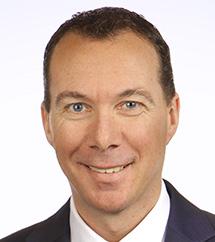
By merging these teams, the bank is hoping to grow both the structured products business and the FX business. “We can achieve various synergy benefits and we have more cross-sell opportunities,” Pronk said. The treasury sales team comprises of four people. Besides Pronk and Arnouts, it also includes Floris van Iersel and Steph Egter van Wissekerke. Both Pronk and Arnouts report to Loes van den Dries, head of treasury at VLK.
Prior to taking up his new role, Pronk was director securities marketing structured products at VLK. In this role he was responsible for structuring and sales of structured products for private investors via distribution channels like private wealth managers, retail banks, asset managers, family offices and investment boutiques across Europe.

Pronk joined VLK in 2017 from ING where his most recent position was that of director, sales of structured products for private investors at ING Financial Markets in Amsterdam. Pronk left ING after the bank decided to halt the offering of equity derivatives to external counterparties and instead offer structured products to professional financial institutions only.
Pronk had worked at ING since September 2005 and was responsible for structuring and selling structured investments propositions for private investors in the Netherlands, the Nordics, and the UK and Ireland. Before that, he was portfolio manager of structured investment funds at Robeco Asset Management.
Natixis Investment Managers






Natixis Investment Managers has appointed Fabrice Chemouny as head of international distribution for Natixis Investment Managers, overseeing client and development activities for Emea, Apac and Latam. Christophe Lanne, chief administration officer for asset & wealth management, will oversee postsales support activities for international distribution, as well as Natixis IM Solutions activities, in addition to his existing responsibilities for global operations and technology and corporate social responsibility strategy.

21 www.structuredretailproducts.com NEWS | EUROPE SRPInsight
Chemouny (above) and Lanne will both report to Tim Ryan, head of asset & wealth management within Groupe BPCE’s Global
Financial Services and will continue to serve on the management committee of asset & wealth management.
Chemouny joined Natixis from CDC IXIS Group in 2000 as senior analyst in the strategy department. In 2003, he was appointed executive vice president, head of international strategy & marketing at Natixis Investment Managers before becoming head of business development and affiliate coordination. He was then appointed executive vice president, global head of institutional sales. In 2017, Chemouny became head of Asia Pacific for Natixis Investment Managers.
Lanne began his career in 1990 with Banque Indosuez (now Crédit Agricole Corporate and Investment Bank) in the general inspection department. After holding several senior positions in Paris, in 2002 he became CEO of Crédit Agricole Indosuez Securities Japan and head of global markets. He joined Natixis in 2010 as COO for Corporate & Investment Banking. He became chief risk officer for Natixis in 2015, before joining asset & wealth management in 2018 as chief transformation & talent officer and was appointed chief administration officer in 2021.
RBC
Royal Bank of Canada (RBC) has bolstered its European equity sales team with the appointment of a new head of UK cash equity sales and a director of cash equities sales for global clients.
Rory MacFarlane has been appointed managing director, head of UK cash equity sales. Based in London, he will report to Paul Adams, European head of cash equity and flow derivative sales.
‘These appointments build on our strategic objective to grow equities in Europe, deepen client relationships and increase our revenue and market share through a coordinated approach across sales, trading, research, derivatives and investment banking,’ said Adams (pictured).
MacFarlane joins the Canadian bank from Berenberg where he was a director. Prior to that, he spent nine years at Investec, most recently serving as the bank’s head of sales. MacFarlane will be responsible for RBC’s cash equity sales offering in the UK, across all products.
Additionally, Edward Redmond has been appointed director, cash equities sales, global clients, RBC. Prior to joining RBC, he was an investment director and product specialist at Artemis Investment Management. Redmond has over 20 years’ experience working at both the buy- and sell-side, having held positions at Citi, Credit Suisse, Goldman Sachs and William Blair, where he specialised in selling US product.

Redmond will report to Pamela Addoh, head of global equity sales, and will be focused on driving global advisory product into UK clients.
Hilbert Investment Solutions
Structured products specialist provider Hilbert Investment Solutions has appointed Arnaud Schmitz to lead crossasset sales in France. Schmitz (left) will bolster the Hilbert IS team which offers a range of long-term savings and retirement solutions to clients across the UK and France. Based in Paris, he will report to Hilbert founder Steve Lamarque.
Schmitz joins from Makor where he sold structured products to wealth managers and corporates, over the last three years. Prior to that he held a similar role at Equitim and he also worked for family office Lucrece Capital in New York and Tunis.

‘We have ambitious growth plans as a business, with some exciting and innovative product launches planned for 2023. Arnaud’s experience and expertise can have a fantastic impact on our business and portfolio performance,’ said Lamarque.
Unicredit
Cristian Comsa has started a new position as managing director, head of funds and credit structured products trading at Unicredit in Milan. Comsa, who has been at Unicredit for almost 15 years, reports to Francesco Robertella, managing director, head of structured products trading. Robertella (left) was appointed to his role in early 2020.
Comsa has been at Unicredit for almost 15 years. For his new role he moved to Milan from Unicredit’s London office where he had been co-head funds and credit structured products trading since August 2021. Before that he was head of structured funds and linear cross assets trading, also in London.
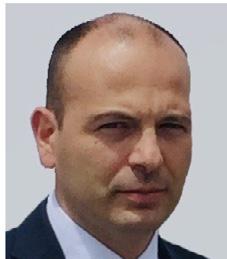
Prior to that he was head of time invariant portfolio protection (TIPP)/constant proportion portfolio insurance (CPPI)/gap option trading. Comsa started his career at Unicredit in 2008 as a director in fund derivatives trading.
Comsa joined Unicredit from Lehman Brothers where he worked for three years as associate fund derivatives trading.
22 www.structuredretailproducts.com NEWS | EUROPE
The only fully open, scalable and secure collaboration platform purpose-built for global markets
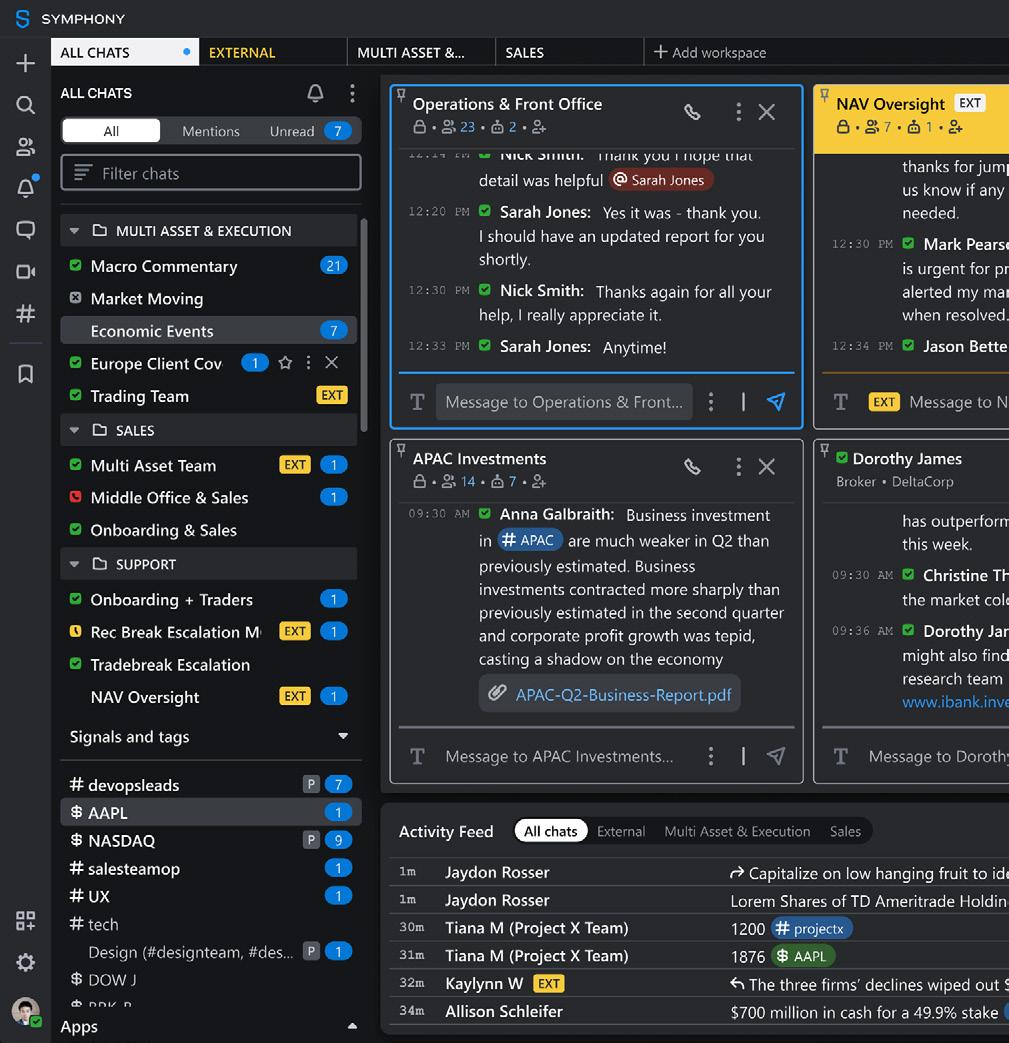
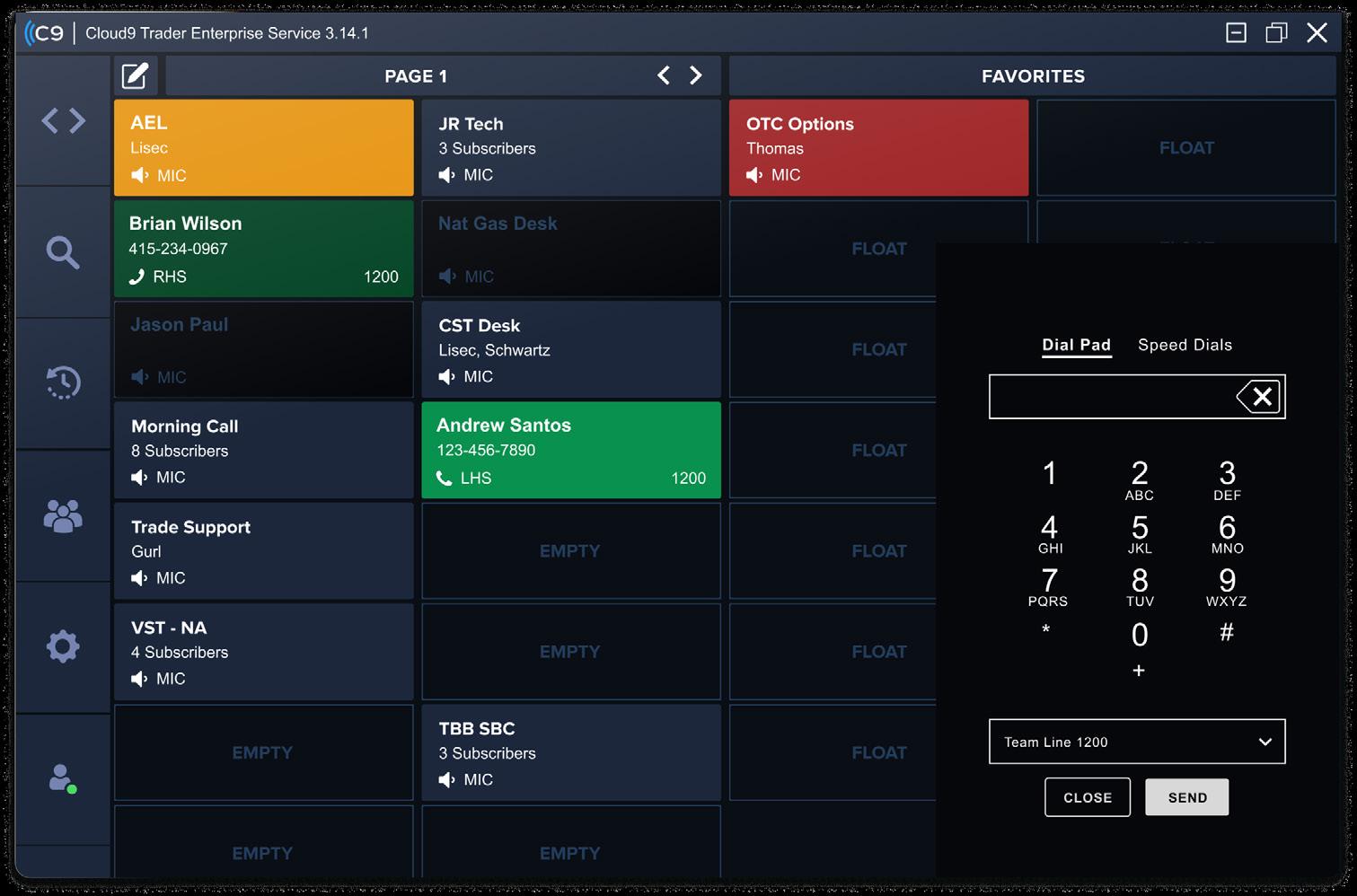

The Symphony community includes over half a million users and more than 1,000 institutions. Symphony powers over 2,000 community built applications and bots for more automated workflows.
For more information, visit www.symphony.com

SECURE. SEAMLESS.
COMMUNICATION.
www.structuredretailproducts.com




































































